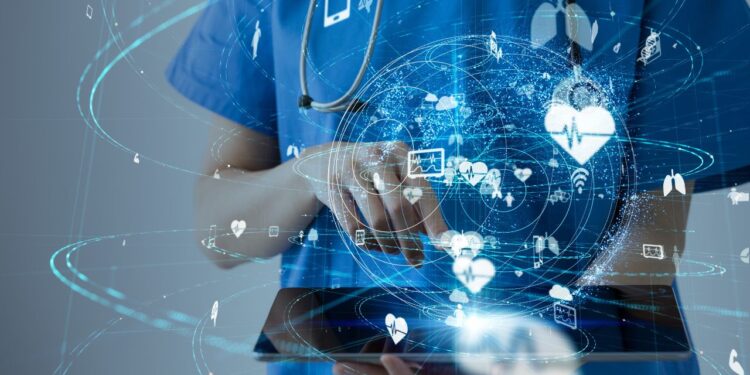Machine learning has already made its presence known in warehouse environments and other jobs that feature repetitive tasks. But there’s an unlikely sector that has the ability to truly benefit from these advancements: healthcare.
America’s healthcare system has been burdened by the pandemic, with the mental and physical health of workers suffering at record-high levels.
While this is bad news for society as a whole, this particularly impacts healthcare workers, who are often left lifting the heavy load left by an increasingly sick world. As a result, these professionals are experiencing higher levels of burnout and other health-related problems.
However, AI may have the ability to alleviate the pressure healthcare workers are experiencing.
Technology already plays a significant role in how the healthcare industry operates, from appointment scheduling to test reading. But Tom Lawry, National Director of AI for Health & Life Sciences at Microsoft, believes even more can be done.
“AI adds value in only one or two ways: It adds value by automating the way work is done or augmenting the way work is done,” said Lawry.
“Automation means highly repetitive work done by humans today is going to be done by a smart machine today or in the future. But the biggest part of healthcare today is augmentation…the idea of augmentation is, ‘How do we bring AI in behind the humans to make them better at something they care about?’”
In short, the purpose of automation isn’t to replace healthcare professionals, it’s simply there to make their jobs easier.
“What artificial intelligence is good at is things like pattern recognition…It’s great at sifting through massive amounts of data to find something that humans either aren’t capable of finding or would take years humans to find,” said Lawry.
“On the other hand, humans are great at wisdom, common sense, empathy, and creativity, all of which are vitally important when you think about the care process.”



 Dr. Gleb Tsipursky – The Office Whisperer
Dr. Gleb Tsipursky – The Office Whisperer Nirit Cohen – WorkFutures
Nirit Cohen – WorkFutures Angela Howard – Culture Expert
Angela Howard – Culture Expert Drew Jones – Design & Innovation
Drew Jones – Design & Innovation Jonathan Price – CRE & Flex Expert
Jonathan Price – CRE & Flex Expert












